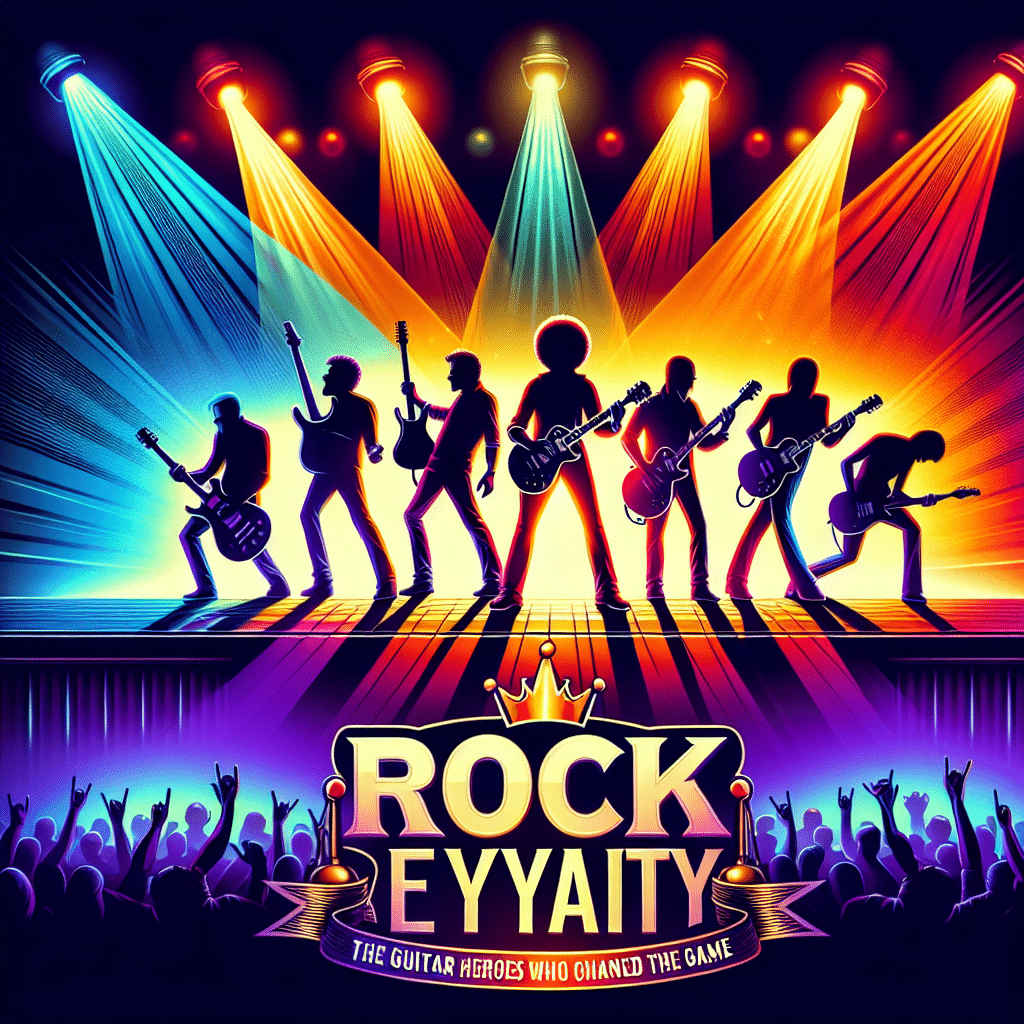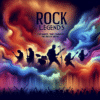Rock Royalty: The Guitar Heroes Who Changed the Game

The electric guitar has long been the emblem of rock music, its thunderous chords serving as the heartbeat of countless legendary tracks. Throughout the history of rock, certain guitarists have distinguished themselves not only through their technical prowess but also by their innovative spirit and contribution to the evolution of music. These 'guitar heroes' have transcended their roles as musicians; they have become icons, redefining genres and shaping the cultural landscape. In this article, we will delve into the lives and legacies of several guitar legends, exploring how they changed the game forever.
The Sound of a Generation: Chuck Berry
No discussion of guitar heroes can begin without acknowledging Chuck Berry. Widely regarded as one of the pioneers of rock and roll, Berry's ingenious fusion of rhythm and blues with country elements laid the groundwork for what would become rock music. His iconic riffs, such as those in "Johnny B. Goode" and "Maybellene," showcased a guitar style that was both approachable and electrifying. Berry was also among the first to make the guitar a central element of popular music, setting the stage for future rock guitarists to follow.
Legacy:
Berry’s influence extends beyond his music, inspiring generations of musicians, including the Beatles, the Rolling Stones, and countless others. His importance in the evolution of rock guitar is firmly established, confirming his place among rock royalty.
Jimi Hendrix: The Innovator
If Chuck Berry laid the foundation, Jimi Hendrix turned rock guitar into an art form. With unparalleled creativity and technical skill, Hendrix pushed the boundaries of what was possible on the guitar. His use of feedback, distortion, and innovative techniques such as fingerstyle playing and two-handed tapping revolutionized the instrument.
See Also: Lost and Found: The Rediscovery of Classic Indie Rock Albums
Lost and Found: The Rediscovery of Classic Indie Rock AlbumsIconic Performances:
Hendrix’s legendary performance at Woodstock in 1969, where he delivered a stunning rendition of "The Star-Spangled Banner," solidified his status as a cultural icon. His ability to blend blues, rock, and psychedelia made him the epitome of the 1960s rock experience. Hendrix's influence can be detected in the music of later artists like Eric Clapton, Jimmy Page, and more contemporary figures like John Mayer.
Legacy:
Hendrix not only reshaped guitar playing but also changed the aesthetics of live performances, making theatricality a critical component of rock and roll.
Jimmy Page: The Architect of Rock
As the primary songwriter and guitarist of Led Zeppelin, Jimmy Page’s combination of blues, hard rock, and folk elements redefined heavy music. His innovative approach to sound engineering, especially his use of the Les Paul guitar to create distinct sonic textures, made classics like "Stairway to Heaven" and "Whole Lotta Love" immortal.
Innovations:
Page's use of alternate tunings and complex chords contributed layers of sound that were groundbreaking. Furthermore, his capacity for combining studio techniques with live performance set a new standard for future rock acts.
See Also: Rock Legends: The Bands That Changed the Face of Music
Rock Legends: The Bands That Changed the Face of MusicLegacy:
Through his work with Led Zeppelin and solo endeavors, Page became a blueprint for rock guitarists worldwide, demonstrating that music could be both powerful and intricate.
Eddie Van Halen: The Virtuoso
Eddie Van Halen revolutionized rock guitar in the late 1970s and 1980s with his technical virtuosity and groundbreaking techniques. Well-known for his two-handed tapping method, Van Halen brought a level of complexity to rock guitar that had never been seen before.
Collaborations and Influence:
His influence is evident in numerous genres, as his style crossed over from hard rock to pop. The astonishing solos in tracks like "Eruption" and "Jump" showcased his innovation and speed, inspiring a host of modern guitarists, including Steve Vai and Joe Satriani.
Legacy:
His death in 2020 marked the end of an era, but Eddie Van Halen’s music continues to inspire new generations, solidifying his place among the greatest guitarists in history.
See Also: String Theory: How These Guitarists Redefined Rock Music
String Theory: How These Guitarists Redefined Rock MusicKurt Cobain: The Anti-Hero
While many guitar heroes showcase technical skills and virtuosity, Kurt Cobain of Nirvana represented a shift toward simplicity and authenticity. His raw, emotional playing style and iconic guitar riffs in songs like "Smells Like Teen Spirit" resonated with a disenchanted youth in the early 1990s.
Cultural Impact:
Cobain’s use of distortion and feedback invoked a sense of rebellion, transforming grunge from a subculture into a dominant music movement. He showed that emotional expression could redefine the rules of guitar playing, making it accessible to those who might not have been technically proficient.
Legacy:
Cobain's influence persists, inspiring countless musicians to prioritize authenticity over technicality in their own work.
Conclusion
The world of rock guitar heroes is rich with diversity, innovation, and artistry. These musicians not only changed the way the guitar is played but also altered the cultural landscape of music entirely. Each guitarist brought their unique flair to the instrument, influencing countless artists across generations and instilling a sense of freedom in musical expression. Rock royalty is not simply about technical skill; it encompasses the ability to innovate, inspire, and evoke emotions, all while redefining what it means to be a musician.
See Also: Shredding Legends: The 10 Best Rock Guitarists of All Time
Shredding Legends: The 10 Best Rock Guitarists of All TimeAs we reflect upon the legacies of these guitar icons, we recognize their importance not only in the realm of music but also in how they shaped popular culture. Their contributions remind us that at the heart of rock lies a spirit of rebellion, creativity, and connection.
Frequently Asked Questions (FAQs)
Q1: Who is considered the greatest rock guitarist of all time?
A1: While opinions vary widely, Jimi Hendrix is often cited as one of the greatest rock guitarists due to his innovative techniques, creativity, and profound influence on music.
Q2: What defines a guitar hero?
A2: A guitar hero is typically someone who demonstrates exceptional skill on the guitar, innovates techniques, adds distinct styles to their music, and inspires other musicians.
Q3: How did Chuck Berry influence modern rock?
A3: Chuck Berry's combination of rhythm and blues with rock and roll paved the way for future rock artists, establishing key guitar riffs and songwriting structures that are still used today.
Q4: What impact did Nirvana have on the music scene?
A4: Nirvana, led by Kurt Cobain, helped popularize grunge music and brought a raw, emotional quality to rock, challenging the glam rock scene of the late 1980s, thus influencing a broader movement of alternative rock.
Q5: How have guitar heroes influenced guitar techniques?
A5: Guitar heroes have introduced various techniques such as two-handed tapping (Eddie Van Halen), use of feedback (Jimi Hendrix), and alternative tunings (Jimmy Page), setting benchmarks for aspiring musicians to emulate.
 Six Strings and Pure Soul: The Guitarists Who Defined Rock Music
Six Strings and Pure Soul: The Guitarists Who Defined Rock MusicIf you want to know other articles similar to Rock Royalty: The Guitar Heroes Who Changed the Game you can visit the category Rock.
